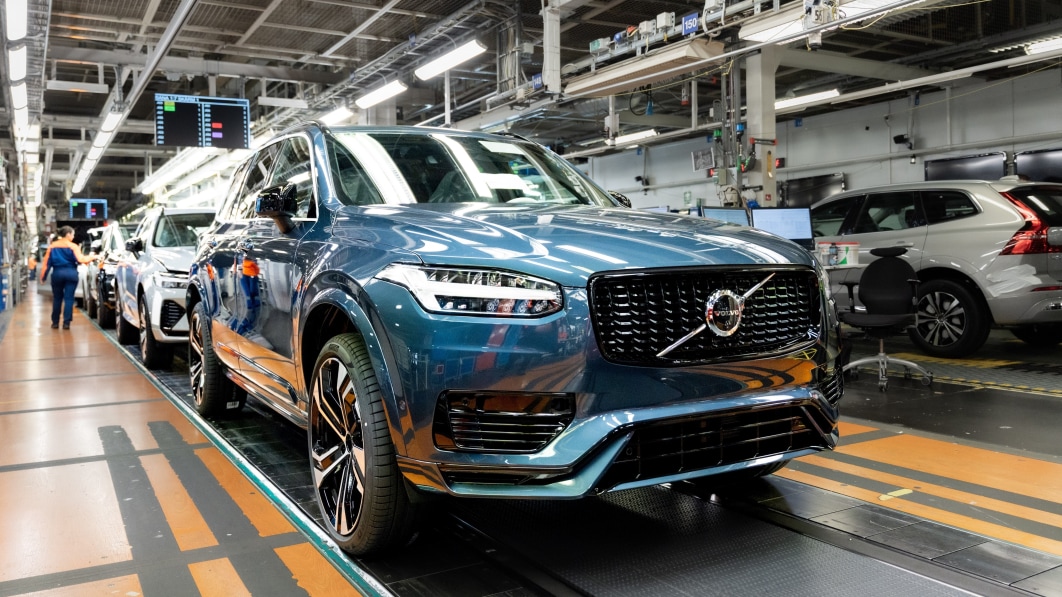It’s over between Volvo and diesel engines. Last September, at Climate Week NYC, the Swedish carmaker said it was breaking up with Otto Diesel’s popular, globetrotting invention. Earlier this month, the Volvo plant in Torslanda, Sweden, sent the penultimate diesel-powered XC90 into the world. Then came the ender, the last of its kind: A blue XC90 produced at Volvo’s Ghent, Belgium, plant utilizing a twin-turbocharged 2.0-liter four-cylinder mild hybrid making 235 horsepower and 354 pound-feet of torque. Just as with the last-of-its-kind Audi R8 that recently emerged from Audi’s Bollinger Hofe facility, the XC90 is headed to a special assignment, the World of Volvo museum, event and conference space slated to open April 14 in Gothenburg, Sweden.
Considering auto development timelines, Volvo practically quit diesel cold-turkey. In 2008, more than 90% of XC90s sold in Europe left dealer lots with diesel engines. In 2012, the carmaker put the world’s first diesel hybrid on the market, the V60 D6 wagon. Five years ago, diesels still accounted for more than half of Volvo’s European sales, the bread-and-butter powertrain across the model lineups. According to Autocar, diesels still power 40% of the premium cars sold in Europe today, meaning Volvo’s walking away from money on the table. It’s doing so without regret, though, saying, “The all-electric direction we’re now heading towards is the right one to take, and we do so with our flag held high.”
After delaying the launch of the XC90’s electric replacement, the EX90, over software issues, the timeline for U.S. buyers still appears to be production in the first half of this year in Ridgeville, South Carolina, deliveries beginning in Q3. The standard dual-motor drivetrain making 402 horsepower and 568 pound-feet of torque starts at $77,990 after destination; the performance version of the same drivetrain making 496 horsepower and 671 pound-feet of torque starts at $82,990.
Automotive News‘ Future Product Pipeline says we’ll see refreshes for the EX40 and EC40 this year, and in 2025, a new all-electric S90 sedan that might be called the ES90, and an electric midsizer to replace the volume-selling XC60.


